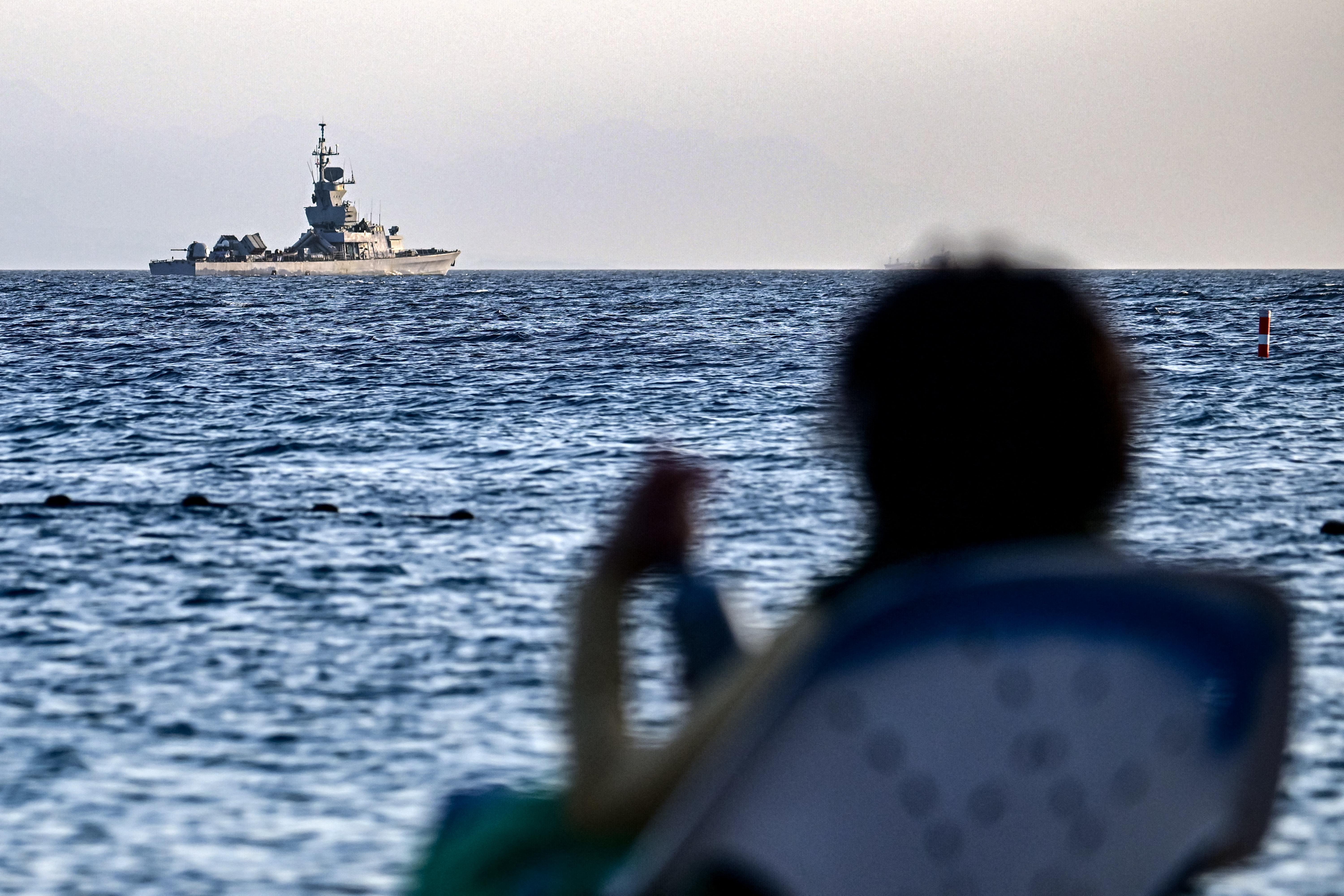 An Israeli navy missile boat patrols in the Red Sea off the coast of Israel's southern port city of Eliat on Dec 26, 2023 following Houthi escalation in the Red Sea and the region, which had already disrupted international shipping. (PHOTO / AFP)
An Israeli navy missile boat patrols in the Red Sea off the coast of Israel's southern port city of Eliat on Dec 26, 2023 following Houthi escalation in the Red Sea and the region, which had already disrupted international shipping. (PHOTO / AFP)
SANAA/JERUSALEM – Yemen's armed Houthi group said they struck the Israeli city of Eilat on Friday with several ballistic missiles.
The group struck "specific targets" in the city to demonstrate its "support to the Palestinian people in facing the Israeli war and blockade," said Houthi military spokesman Yahya Sarea in a statement aired by the group's al-Masirah TV.
"We will not hesitate to carry out further military operations against the Zionist enemy (Israel) on land and at sea until the aggression is stopped and the siege on the Palestinian people in the Gaza Strip is lifted," he said.
READ MORE: Yemen's Houthis vow more attacks against Israel amid strikes
Hours earlier, Israel Defense Forces said they intercepted a surface-to-surface missile in the Red Sea. No sirens were triggered during the incident.
The IDF said it used the latest long-range "Arrow" air defense system to shoot down the missile approaching Israel.
No sirens were triggered during the incident.
Since the Israel-Hamas war broke out in October last year, the armed Houthi group in northern Yemen has launched multiple missiles and drones toward Israel in what the Houthis said was to support the Palestinian people in the war-ravaged Gaza Strip.
In November, a Houthi suicide bomb-laden drone hit a school in the southern city of Eilat, causing minor injuries, according to Israeli media outlets. No one has claimed responsibility for the attack.
ALSO READ: Houthi group says attacked US ship in Red Sea
However, the Houthi group in Yemen said it sent missiles and drones toward targets in Eilat in some of the previous attacks on the Israeli coastal city.
The Houthi escalation in the region and the Red Sea, which had already disrupted international shipping, raised tensions across the Middle East that could expand the conflict and hinder the regional peace process.


